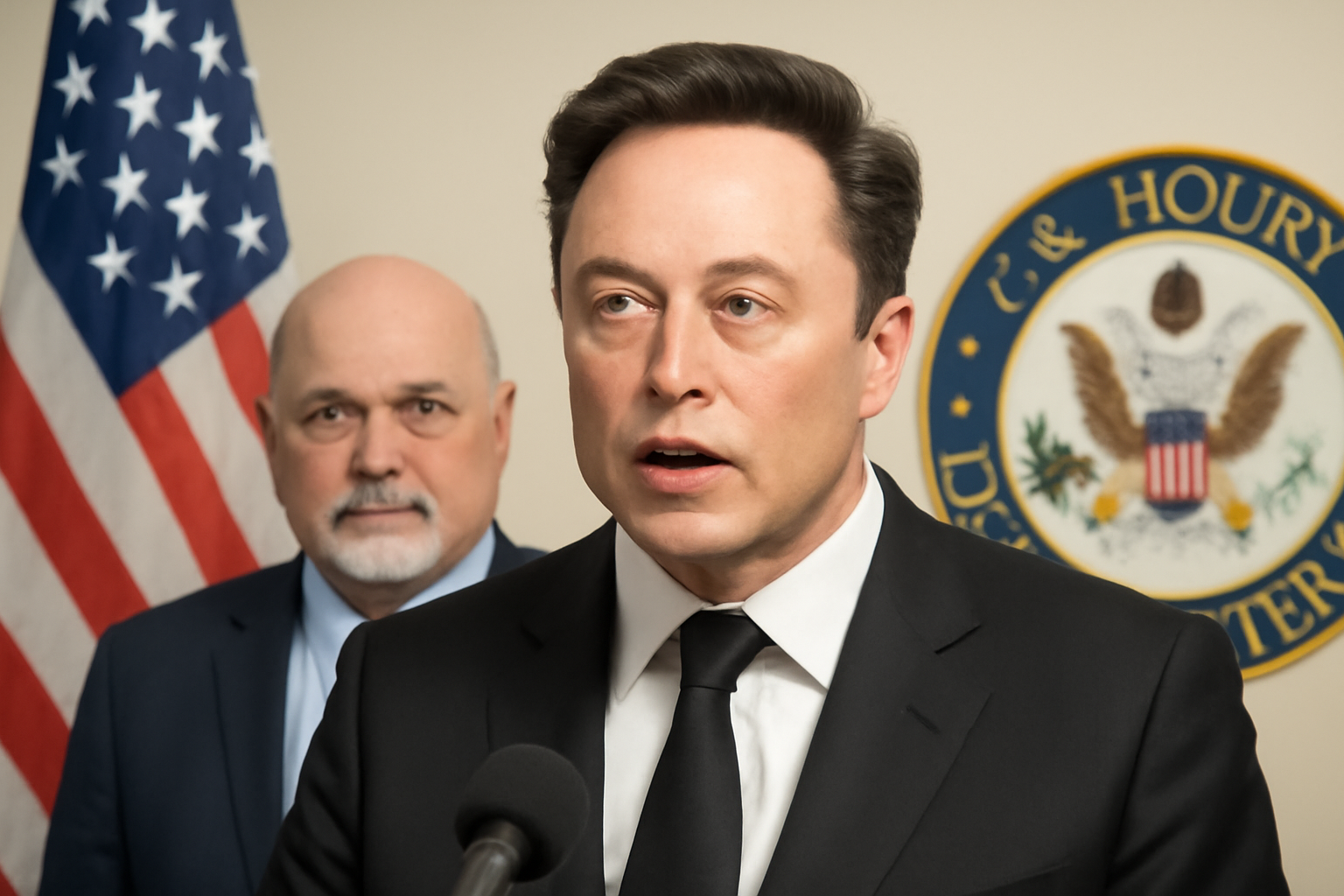
Representative Mark Pocan (D-WI) has put forward a provocative piece of legislation aimed at curbing the unprecedented influence of billionaire Elon Musk over U.S. government operations. The bill, humorously dubbed the Eliminate Looting of Our Nation by Mitigating Unethical State Kleptocracy (ELON MUSK) Act, seeks to address the concerns over Musk’s alleged inappropriate involvement in governmental affairs.
Unchecked Influence
Musk, the outspoken CEO of the social media platform X and aerospace company SpaceX, has accumulated an estimated $20 billion in U.S. government contracts. Critics argue that his growing influence within the government presents a clear attempt to bypass conventional democratic processes and impose policies that align with his personal and political interests.
One of the most controversial aspects of Musk's involvement is his control over the Treasury’s payment system, a crucial mechanism for disbursing federal funds such as Social Security and tax refunds. This move has raised alarms about potential breaches in governance and accountability.
Constitutional Concerns
Senator Chris Murphy (D-CT) has voiced concerns that Musk's actions have precipitated a constitutional crisis, particularly in light of Musk’s opposition to USAID. USAID is responsible for international aid, including critical HIV/AIDS prevention and treatment programs. Musk’s stance, reportedly supported by former President Trump, threatens to dismantle these initiatives.
Musk's shift from a private citizen to a 'special government employee' without pay—a role that sidesteps the financial disclosure requirements faced by traditional federal employees—has further fueled controversy. This designation ostensibly allows him to exert influence without the transparency that typically accompanies public service roles.
The ELON MUSK Act
Pocan’s proposed legislation aims to enforce a stricter separation between business interests and government functions. Specifically, it would require federal agencies to terminate contracts with individuals serving as special government employees. "No one should have the ability to direct funds towards their personal interest if they are working for the federal government," Pocan asserted.
The bill underscores the importance of protecting taxpayer interests by preventing conflicts of interest that could arise from such dual roles. Pocan emphasized that Musk’s substantial financial gains since the 2024 election—marked by a $154 billion increase in wealth—underscore the need for rigorous oversight.
Legislative Challenges
Despite its potential impact, the ELON MUSK Act faces significant hurdles. With Republicans holding the majority in both the House and the Senate, and likely opposition from Trump, the bill’s future remains uncertain. Nonetheless, it has sparked a critical conversation about the boundaries between private enterprise and public governance.
Senators Elizabeth Warren (D-MA) and Ron Wyden (D-OR) are also advocating for increased scrutiny. They have requested the Government Accountability Office to investigate how Musk gained access to the Treasury's payment infrastructure. Meanwhile, efforts by the House Oversight and Government Reform Committee to subpoena Musk narrowly failed, highlighting the contentious nature of this issue.
A Call for Accountability
As the debate unfolds, Pocan's initiative represents a broader call for accountability and ethical governance. "No government employee, ‘Special’ or not, should have any financial interest in who the government does business with," Pocan stated, denouncing Musk as emblematic of potential abuses within the system.
The discussion around the ELON MUSK Act reflects wider concerns about the influence of wealthy individuals in politics and the safeguarding of democratic institutions. For the LGBTQ+ community and others advocating for transparent governance, such measures are seen as essential in preserving the integrity of public service.
As this story develops, many are watching closely to see how it will impact the relationship between business leaders and government, as well as its implications for democracy and accountability in the United States.
Stay informed with our newsletter for more updates on how political and economic shifts impact the LGBTQ+ community and beyond.
Related Posts
Triumphant Trans Woman Wins Legal Battle and Inspires Others to Stand Up for Their Rights
Breaking new ground: a landmark victory in transgender rights After battling in courtrooms and enduring endless challenges, Diana Portillo, a transgender woman, has secured a monumental victory in her decade-long fight against workplace discrimination. The result? Nearly $1 million awarded in a historic settlement. But this isn't just a win on paper—it represents a powerful precedent in combati [...]
Pride Month in Latin America: Protests and Demands for Equality
**Celebrating Pride and advocating LGBTQ+ rights in Latin America** Pride Month in Latin America was a lively mix where celebration met activism. Communities united, not just throwing a party but making a stand—demanding equality and pushing governments toward better protection and rights recognition. Throughout Latin America, pride events erupted in marches and cultural displays, each with a c [...]
Transgender Erasure Actions Implemented by National Park Service
```html Trump administration's impact on national park service and transgender recognition The Trump administration made notable moves in undermining transgender representation, which included directing agencies like National Park Service not include "T" and "Q" when they refered “LGBTQ” in any official communication. This move seems part a broader plan by this administration aimed at reducin [...]